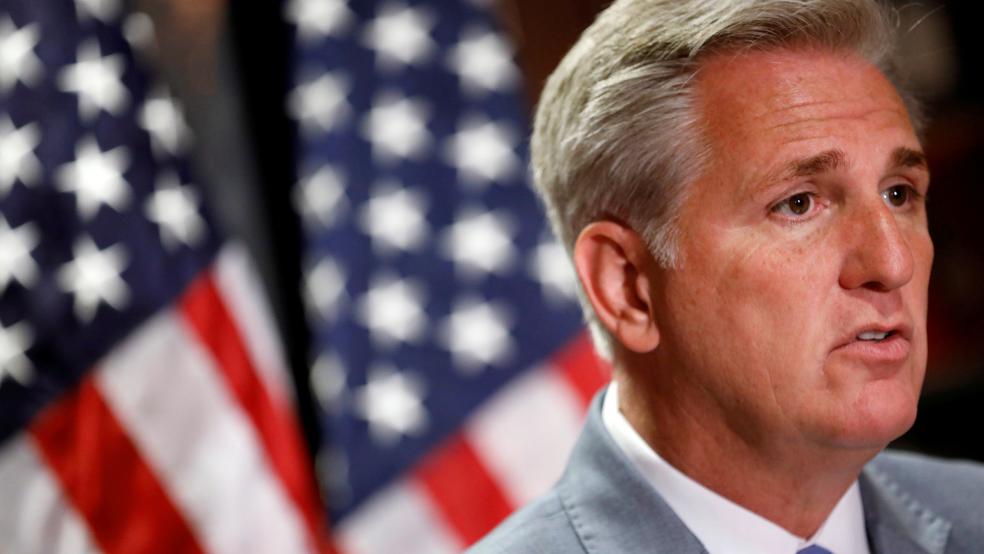Republicans have been hammering President Joe Biden over inflation running at a 40-year high. The “Commitment to America” agenda outlined last month by House Republican Leader Kevin McCarthy of California promised to strengthen the economy and fight inflation. Yet as The Washington Post’s Jeff Stein reports, Republicans plan to try to extend parts of their 2017 tax cuts if they win control of Congress — a step that many economists say would worsen inflation and run contrary to GOP rhetoric about reducing the federal budget deficit.
To keep down the official cost of their 2017 tax reform, Republicans set some individual tax cuts to expire after 2025. But Stein reports that Republicans are now “preparing to advance legislation” to make permanent the 2017 individual income tax rates — and that the GOP “will also push for scrapping some of the law’s specific tax increases on corporations that were designed to offset the cost of their enormous overall cut to the corporate tax rate.”
Stein adds that Republicans are already looking to extend a trio of corporate tax breaks that would collectively add some $600 billion to the deficit over 10 years.
Any such effort wouldn’t be a surprise — but it may run counter to the GOP’s promises regarding inflation and deficits.
“Many economists say the GOP’s plans to expand the tax cuts flies against their promises to fight inflation and reduce the federal deficit, which have emerged as central themes of their 2022 midterm campaign rhetoric,” Stein writes. “Tax cuts boost inflation just like new spending, because they increase economic demand and throw it out of balance with supply. But Republicans say they believe these efforts would put Biden in a political bind, requiring him to choose between vetoing the tax cuts — giving the GOP an attack line in the 2024 presidential election — or allowing Republicans to win on one of their central legislative agenda items.”
The White House is already punching back by reviving some familiar — and largely effective — attacks on the 2017 tax cuts, telling Stein that Republicans are selling out the middle class and “doubling down on their 2017 tax giveaway to the ultrawealthy and corporations.”
Democrats will have some support on the point from analysts, too. “The Republicans did not want to look like they were giving too much away to businesses, so they had some of the business relief expire and had some offset by business tax increases,” Steve Rosenthal, a policy analyst at the nonpartisan Tax Policy Center, told Stein. “Now to come back and extend business relief and reverse the increases would mean further tilting our tax system toward the rich and the powerful.”
The bottom line: “It’ll be a battle royale in Washington over the next year over which of Trump’s tax cuts get extended,” Stephen Moore, a right-wing economist, told the Post. “This will be a central, driving theme of the Republican Congress — making those tax cuts permanent.”
One possible outcome would be particularly disappointing to deficit hawks: an extension of the GOP tax cuts combined with new spending programs that Democrats want, like a renewal of the expanded child tax credit.





